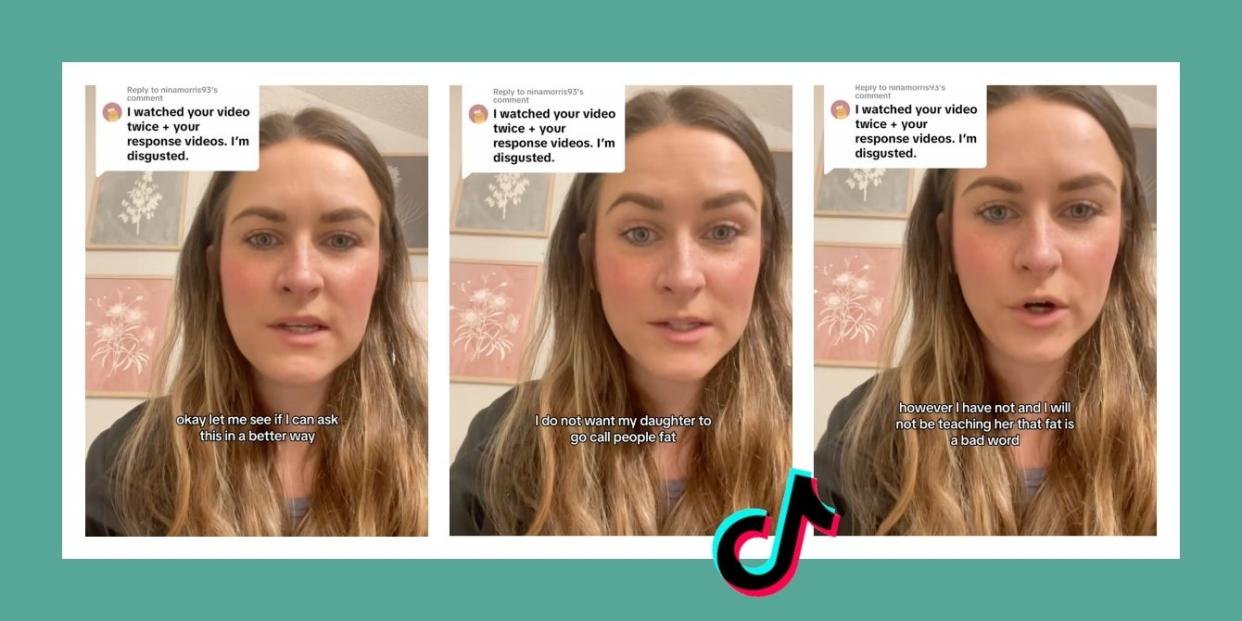Mom wonders how to address the word ‘fat’ with her preschool-age daughter

Raising a body-positive or body-neutral child in a world where every word about bodies is charged in one way or another can feel like an impossible task. One mom put that into perspective in a viral TikTok video where she wondered how to address a situation with her preschool-age daughter, who came home talking about a new friend she described as “fat.”
I need some parenting advice from the internet on whether I should let my four-year-old daughter call another girl in her class ‘fat’. Because on the one hand, I know she doesn’t mean any harm by it. Like, she knows the word ‘fat’ to mean big or wide. She just knows it as a word like the opposite of slim is fat. Big, small, fat, skinny. My daughter isn’t trying to bully this girl,” mom Brittany Cole explained in her video.
However, she added, she wasn’t sure how to address the word with her daughter without accidentally teaching her that “fat” = “bad.”
“My first instinct was to say, ‘Oh no, don’t call her fat.’ But I didn’t say that because then I also thought, in my mind, well fat isn’t necessarily an insult. She doesn’t mean it as an insult. and we’re trying to reframe that word as a society to not mean an insult, and it doesn’t mean anything bad about your character or anything else. It’s just the shape of your body,” she explained. “Do I ruin my daughter’s view of the world by teaching her that the word fat is an insult and that she shouldn’t say that to other kids? Do I let it go and run the risk of her insulting another kid and coming off as a bully even unintentionally? Help me out.”
Thankfully, the comment section came through. In a follow-up video, Cole shared the solution they helped her come to.
“So, instead of letting my daughter call her friends or describe her friends as fat, I should just teach her to describe them in different ways and not comment on their bodies at all,” she said. “We should just talk about other things about her friends and steer her away from commenting about bodies, and I think this is a really good solution.”
This is a great solution, because to be truly body neutral, it’s important to recognize that bodies, however they look, are just the physical things we exist in — they don’t define us one bit.
Cole asked, “Hey, can you tell me some other things about her? What’s her favorite color? Is she good at singing? Is she a really fast runner? Do you guys play games together at recess? What kind of food does she like to eat?”
She continued, “And I let her know that, you know, I really don’t care that much about what she looks like. That’s really not that interesting. I’m sure she’s a beautiful little girl, but can you tell me other things about her? Like, cool, interesting things? Does she have any superpowers?”
This is such a great way to frame this, and definitely a good way to think about things when we talk to our kids about themselves and their friends.

 Yahoo Movies
Yahoo Movies 
